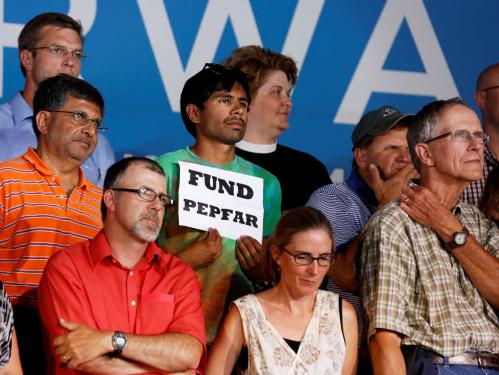2025
Instability in the global economy has produced increased interest in the study of happiness. Social scientists, pollsters and the media are increasingly asking if Americans feel happy, secure and hopeful about the future – or if instead they feel burdened by bad economic news. France and Britain are even considering the use of national well-being indicators, leading to speculation that happiness might become an overt national policy objective.
NOTE: The audio for this event is truncated at the very beginning, due to technical difficulties.
On April 15 – tax day in the United States – the Foreign Policy and Global Economy and Development programs at Brookings hosted a discussion focusing on happiness in the United States and around the world. Panelists discussed how the global economic crisis is affecting peoples’ sense of security and well-being, the challenges of measuring happiness, and, curiously, why Republicans are happier than Democrats in the United States.
After the program, the panelists took audience questions.
Happiness in an Age of Uncertainty
Agenda
-
April 15
-
Moderator
 E.J. Dionne, Jr. W. Averell Harriman Chair and Senior Fellow - Governance Studies, Center for Effective Public Management @EJDionne
E.J. Dionne, Jr. W. Averell Harriman Chair and Senior Fellow - Governance Studies, Center for Effective Public Management @EJDionne -
Panelists
 Alan B. Krueger Bendheim Professor of Economics and Public Affairs - Princeton UniversityELEduardo Lora Senior Fellow - Center for International Development, Harvard University
Alan B. Krueger Bendheim Professor of Economics and Public Affairs - Princeton UniversityELEduardo Lora Senior Fellow - Center for International Development, Harvard University
-


